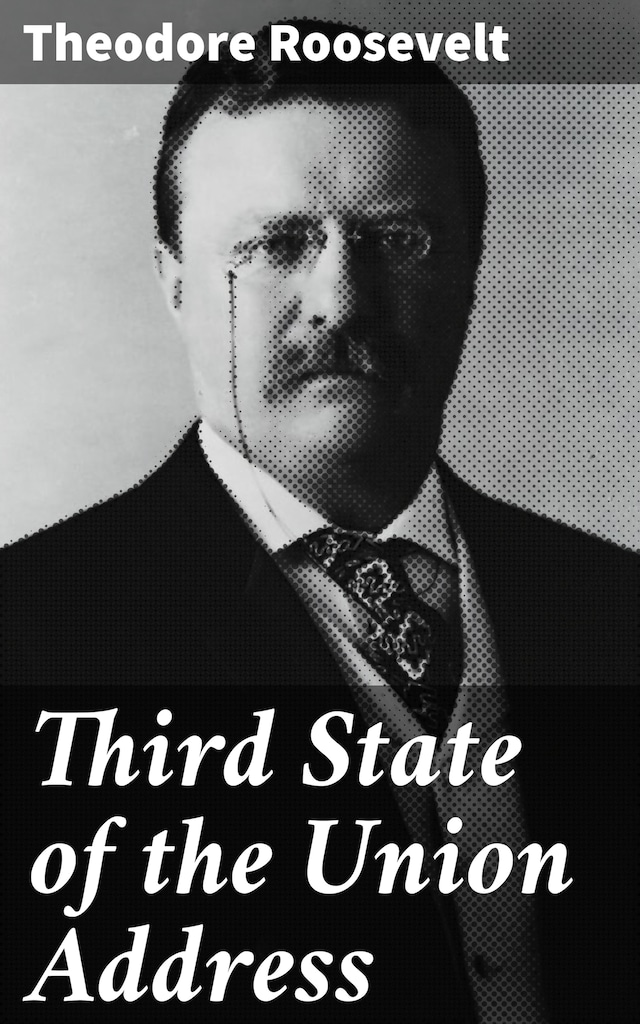
Third State of the Union Address
A Vision for Progress and Renewal in America's Future
Om bogen
The "Third State of the Union Address" by Theodore Roosevelt stands as a notable piece of political oratory that reflects his progressive vision for America during the early 20th century. Delivered on December 3, 1901, this address deftly navigates the challenges of industrialization, social equity, and national integrity, employing a vigorous yet accessible literary style. Roosevelt's prose is marked by a blend of eloquence and directness, emphasizing his strong belief in active government intervention to support the welfare of its citizens. The address also places Roosevelt within the context of the progressive era, highlighting his commitment to reforming corporate regulation, labor rights, and public health initiatives. Theodore Roosevelt, the 26th President of the United States, was an avid proponent of reform who rose to prominence through his dynamic leadership and unyielding spirit. His early experiences as a rancher and naturalist, combined with his scholarly background, informed a worldview marked by a deep sense of duty toward social justice and environmental conservation. His approach to governance was shaped by his belief in the moral responsibility of the state to uplift the disadvantaged and curb the excesses of capitalism. Readers seeking an insightful examination of early 20th-century America will find Roosevelt's address a compelling and relevant study. It not only illuminates the socio-political landscape of its time but also resonates with contemporary discussions about government responsibility and civic engagement. This address is essential for those interested in the roots of American political thought and the enduring legacy of one of its most dynamic leaders.
 Theodore Roosevelt
Theodore Roosevelt 52 Sider
52 Sider